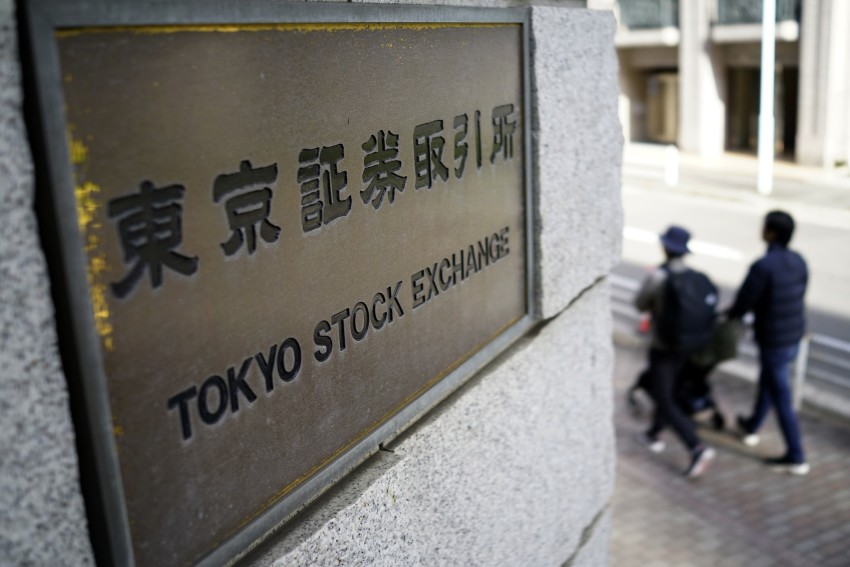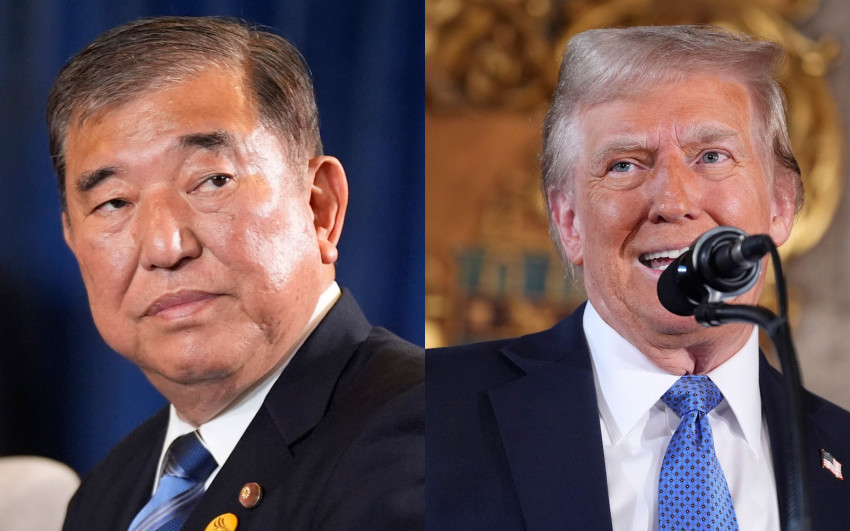Asian stocks mixed after Wall Street falls ahead of key U.S. jobs report

Asian stocks were mixed Friday after Wall Street retreated from record highs as investors awaited a U.S. jobs report due later in the day.
U.S. futures were lower and oil prices were little changed.
This week’s highlight for markets will be Friday’s jobs report from the U.S. government, which will show how many people employers hired and fired last month. A report on Thursday said the number of U.S. workers applying for unemployment benefits rose last week but remains at historically healthy levels.
Japan’s benchmark Nikkei 225 fell 304.43 points from Thursday to close at 39,091.17. The U.S. dollar fell to 149.91 Japanese yen from 150.10 yen.
Chinese stocks rallied. The Hang Seng in Hong Kong added 1.4% to 19,831.37 and the Shanghai Composite index surged 1.2% to 3,410.36. Markets are watching for the outcome of an annual economic policy meeting scheduled for next week.
Analysts said policymakers might lean toward caution as they brace for President-elect Donald Trump's moves on tariffs and trade.
South Korea’s Kospi dropped 0.6% to 2,422.95. On Friday, South Korea’s ruling party chief showed support for suspending the constitutional powers of President Yoon Suk Yeol after he declared martial law and then revoked that earlier this week. Yoon is facing calls to resign and be investigated and may be impeached.
Thousands of protesters have marched in the streets and thousands of autoworkers and other members of the Korean Metal Workers’ Union, one of the country’s biggest umbrella labor groups, began partial strikes Thursday to protest against Yoon. The union said its members will begin indefinite strikes starting on Wednesday if Yoon does not leave office by then.
Elsewhere in Asia, Australia’s S&P/ASX 200 lost 0.6% to 8,424.00.
Bitcoin briefly burst above $103,000 on Thursday before pulling back after exceeding $100,000 for the first time following President-elect Donald Trump's nomination of financier Paul Atkins, who’s seen as a crypto advocate, to head the Securities and Exchange Commission.
Bitcoin was trading at 97,941.86 early Friday, according to CoinDesk.
On Thursday, the S&P 500 slipped 0.2% to 6,075.11 but it's still set to close out one of its best years of the millennium. The Dow Jones Industrial Average fell 0.6% to 44,765.71, while the Nasdaq composite slipped 0.2% from its own record set the day before to close at 19,700.26.
Solid consumer spending is a key reason the U.S. economy has avoided a recession that had seemed inevitable after the Federal Reserve hiked interest rates to crush inflation. But shoppers are now contending with still-high prices and a slowing job market.
Expectations are high that the Fed will cut its main interest rate again when it meets before Christmas. The Fed began easing its main interest rate from a two-decade high in September, hoping to offer more support for the job market.
Also Thursday, the yield on the 10-year Treasury edged down to 4.17% from 4.18% late Wednesday.
In other dealings early Friday, benchmark U.S. crude lost 1 cent to $68.29 a barrel. Brent crude, the international standard, was down 7 cents at $72.02 a barrel.
The euro inched down to $1.0576 from $1.05895 after French President Emmanuel Macron announced Thursday local time that he plans to stay in office until the end of his term and to name a new prime minister within days. This comes after far-right and left-wing lawmakers approved a no-confidence motion due to budget disputes, forcing Prime Minister Michel Barnier and his cabinet to resign.
AP Business Writer Stan Choe contributed.













